1. Michelle Obama’s School Lunch Guidelines
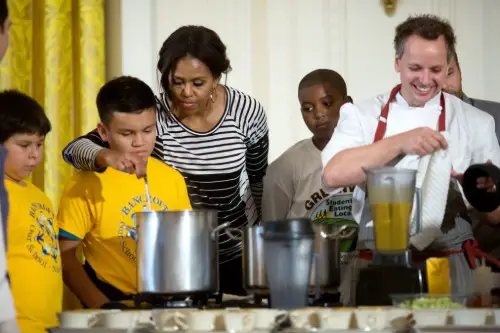
Back in 2010, Michelle Obama led the “Let’s Move!” initiative, which aimed to improve children’s health by making school lunches more nutritious. This included adding more fruits and vegetables and limiting things like sodium and processed foods. Seems reasonable, right? But some critics painted it as government overreach and accused her of “telling kids what to eat.”
The backlash got so intense that some schools even opted out of the federal lunch program to avoid the new rules. Right-wing media outlets ran segments about kids being “starved” by the guidelines. In reality, the changes just nudged schools toward offering healthier options. It’s wild how “eat more veggies” turned into a national debate.
2. Asking People to Wear Masks During COVID-19

At the start of the COVID-19 pandemic, public health officials recommended wearing face masks to slow the spread. It was meant to be a simple, non-invasive step to protect others, especially the vulnerable. But it quickly turned into a cultural and political flashpoint. Somehow, a basic public health tool became a symbol of tyranny to some.
Mask mandates sparked protests, lawsuits, and even violence in some places. People accused the government of infringing on their freedoms, despite masks being common in other countries during flu seasons. It wasn’t about silencing anyone—it was about stopping a respiratory virus. But in America, even a piece of cloth over your face became a battle line.
3. Adding Trigger Warnings in College Classrooms
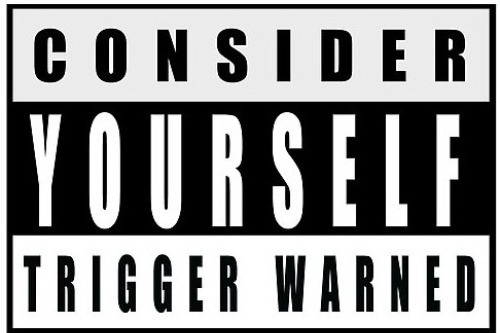
Trigger warnings started being used in academic settings to give students a heads-up about potentially traumatic content. The idea wasn’t to ban any material, just to offer a little emotional prep time. But suddenly, people were claiming this meant students were “too sensitive” or “coddled.” Critics accused colleges of killing free speech.
In most cases, professors weren’t being forced to use these warnings—they just chose to. And students weren’t asking to avoid the material, just to be warned. Still, the debate spiraled, with op-eds claiming the end of academia was near. All over a few words before a lecture.
4. Starbucks’ Red Holiday Cups

In 2015, Starbucks released minimalist red holiday cups without any overt Christmas symbols. They were sleek and seasonal but didn’t feature snowflakes or Santa hats like past years. That small design choice led to an uproar among some conservative commentators. They claimed Starbucks was part of a “war on Christmas.”
The controversy went viral after a video by a self-proclaimed Christian evangelist accused the company of hating Jesus. Starbucks had never claimed to be anti-Christmas—they just went for a modern look. But the debate dominated headlines and social media for weeks. All over a cup.
5. Encouraging People to Use Energy-Efficient Lightbulbs
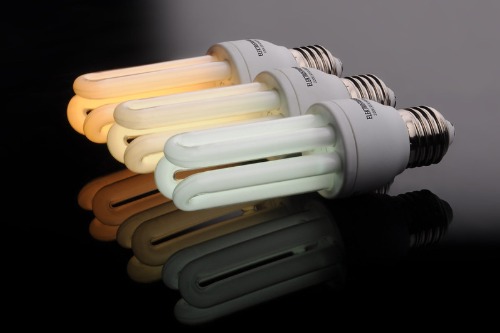
When the federal government pushed for a phase-out of incandescent lightbulbs in favor of energy-efficient ones, you’d think people would be glad to save on their electric bills. But the 2007 Energy Independence and Security Act became a target for critics who said it was a symbol of government intrusion. Some even stockpiled old bulbs in protest. The outrage seemed disproportionate to the change.
The new bulbs lasted longer and were better for the environment. Yet somehow, the phrase “Obama’s lightbulb ban” became a talking point—even though the law passed under President Bush. It was a mild shift toward sustainability, not a lifestyle overhaul. But that didn’t stop it from being labeled “controversial.”
6. Teaching Kids That Slavery Was Bad
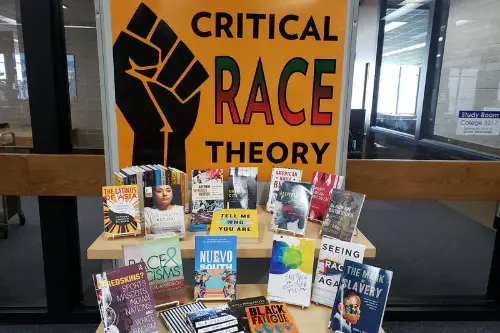
Efforts to make school curricula more inclusive and honest about America’s history—especially regarding slavery—have met fierce resistance in recent years. Some parents and politicians claimed these lessons made kids “feel guilty” or promoted “critical race theory.” In many cases, educators were just trying to teach the facts, not push a political agenda. Still, school board meetings turned into battlegrounds.
Books were banned, and teachers faced censorship for simply discussing racism’s legacy. The pushback made it sound like talking about slavery was a radical act. But really, it’s the bare minimum in understanding U.S. history. Teaching the truth shouldn’t be seen as a threat.
7. Asking People to Call Others by Their Preferred Pronouns
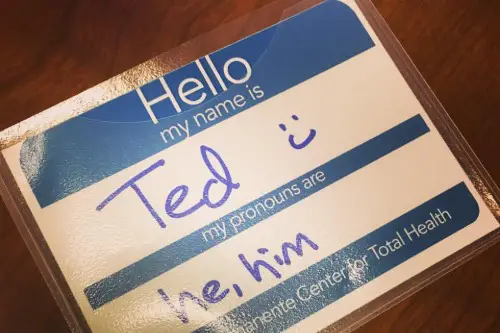
Using someone’s preferred pronouns—like “he,” “she,” or “they”—is a small gesture of respect. It’s not a legal mandate or a major policy shift, just a courtesy. Yet in recent years, this simple ask has been framed as a major ideological battle. Some argued it was an infringement on free speech or “forced language.”
Schools, workplaces, and online platforms were accused of pushing a radical agenda for encouraging inclusion. But at the core, it’s just about acknowledging how someone wants to be seen. No one’s being jailed for getting it wrong—most people just want an effort. Still, it became one of the most polarizing topics in modern discourse.
8. Promoting Meatless Mondays

“Meatless Monday” is a global campaign that encourages people to skip meat one day a week for health and environmental reasons. Sounds simple, right? But when schools or public figures suggested participating, critics fired back with cries of “anti-meat” propaganda. Some even said it was an attack on American values.
In 2012, the USDA briefly supported the idea internally before retracting it after backlash. Even though it was just one optional day without meat, it was portrayed as a threat to farmers and freedom. The science behind the campaign was solid, but emotions ran high. Apparently, suggesting beans instead of burgers on Mondays was a bridge too far.
This post 8 Things That Got Labeled as “Controversial” in the U.S. But Were Just Mild Suggestions was first published on American Charm.


